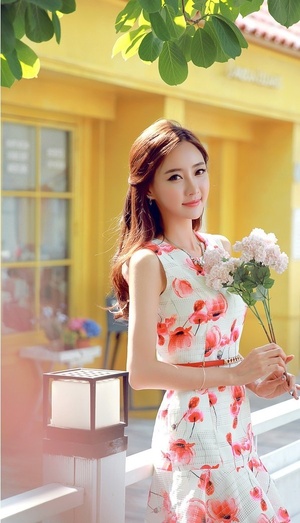
He almost always ate lunch at home and had a ten-minute siesta on the terrace in the patio,hearing in his sleep the songs of the servant girls under the leaves of the mango trees, the cries ofvendors on the street, the uproar of oil and motors from the bay whose exhaust fumes flutteredthrough the house on hot afternoons like an angel condemned to putrefaction. Then he read hisnew books for an hour, above all novels and works of history, and gave lessons in French andsinging to the tame parrot who had been a local attraction for years. At four o'clock, after drinking a large glass of lemonade with ice, he left to call on his patients. In spite of his age he would notsee patients in his office and continued to care for them in their homes as he always had, since thecity was so domesticated that one could go anywhere in safety .
After he returned from Europe the first time, he used the family landau, drawn by two goldenchestnuts, but when this was no longer practical he changed it for a Victoria and a single horse,and he continued to use it, with a certain disdain for fashion, when carriages had already begun todisappear from the world and the only ones left in the city were for giving rides to tourists andcarrying wreaths at funerals. Although he refused to retire, he was aware that he was called in onlyfor hopeless cases, but he considered this a form of specialisation too. He could tell what waswrong with a patient just by looking at him, he grew more and more distrustful of patentmedicines, and he viewed with alarm the vulgarisation of surgery. He would say: "The scalpel isthe greatest proof of the failure of medicine." He thought that, in a strict sense, all medication waspoison and that seventy percent of common foods hastened death. "In any case," he would say inclass, "the little medicine we know is known only by a few doctors." From youthful enthusiasm hehad moved to a position that he himself defined as fatalistic humanism: "Each man is master of hisown death, and all that we can do when the time comes is to help him die without fear of pain."But despite these extreme ideas, which were already part of local medical folklore, his formerpupils continued to consult him even after they were established in the profession, for theyrecognised in him what was called in those days a clinical eye. In any event, he was always anexpensive and exclusive doctor, and his patients were concentrated in the ancestral homes in theDistrict of the Viceroys .
His daily schedule was so methodical that his wife knew where to send him a message if anemergency arose in the course of the afternoon. When he was a young man he would stop in theParish Caf?before coming home, and this was where he perfected his chess game with his fatherin-law's cronies and some Caribbean refugees. But he had not returned to the Parish Caf?since thedawn of the new century, and he had attempted to organise national tournaments under thesponsorship of the Social Club. It was at this time that Jeremiah de Saint-Amour arrived, his kneesalready dead, not yet a photographer of children, yet in less than three months everyone who knewhow to move a bishop across a chessboard knew who he was, because no one had been able todefeat him in a game. For Dr. Juvenal Urbino it was a miraculous meeting, at the very momentwhen chess had become an unconquerable passion for him and he no longer had many opponentswho could satisfy it .
Thanks to him, Jeremiah de Saint-Amour could become what he was among us. Dr. Urbinomade himself his unconditional protector, his guarantor in everything, without even taking thetrouble to learn who he was or what he did or what inglorious Avars he had come from in hiscrippled, broken state. He eventually lent him the money to set up his photography studio, andfrom the time he took his first picture of a child startled by the magnesium flash, Jeremiah deSaint-Amour paid back every last penny with religious regularity.
